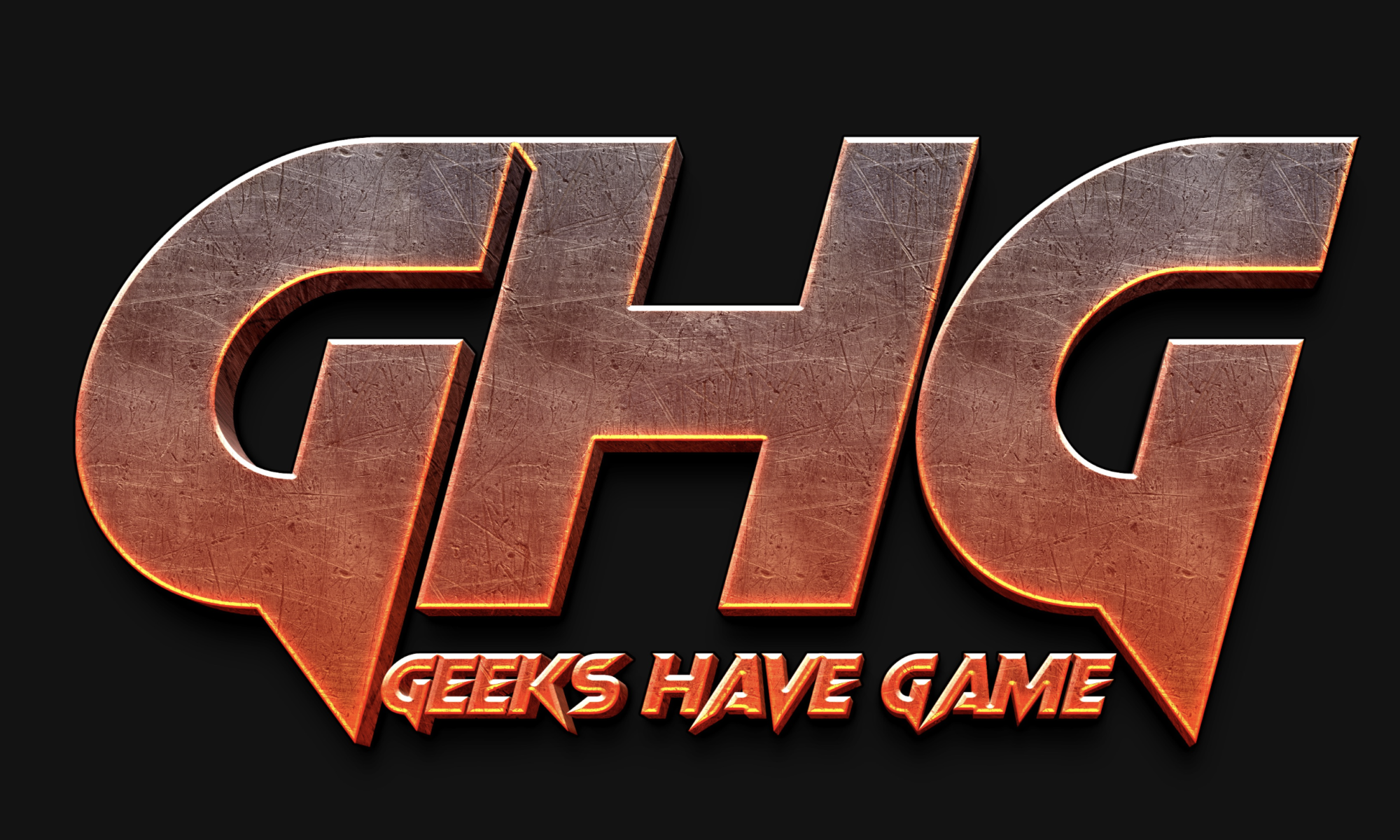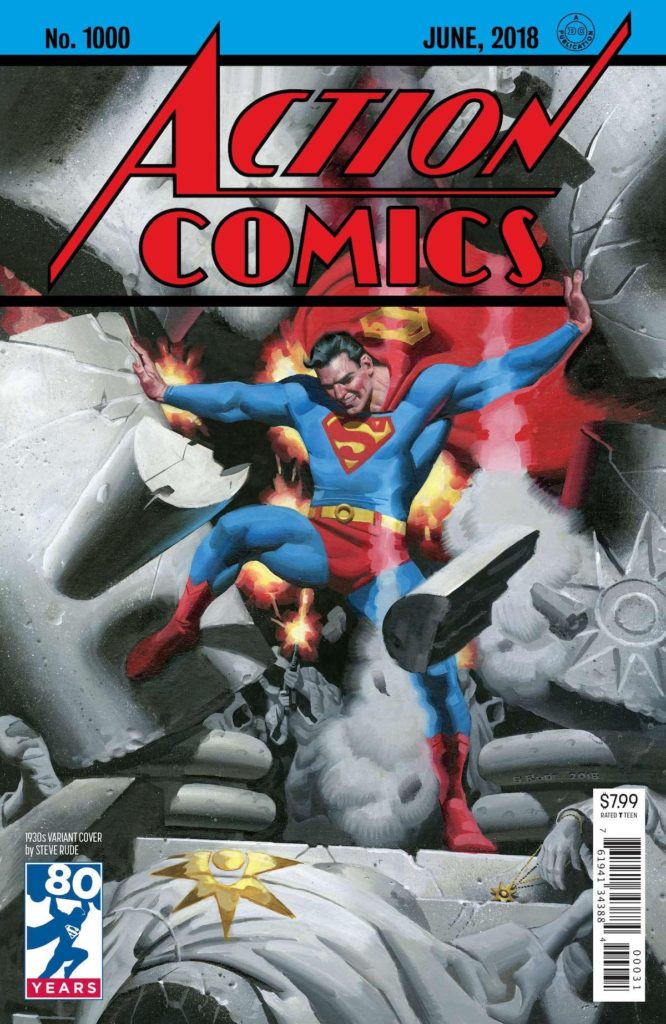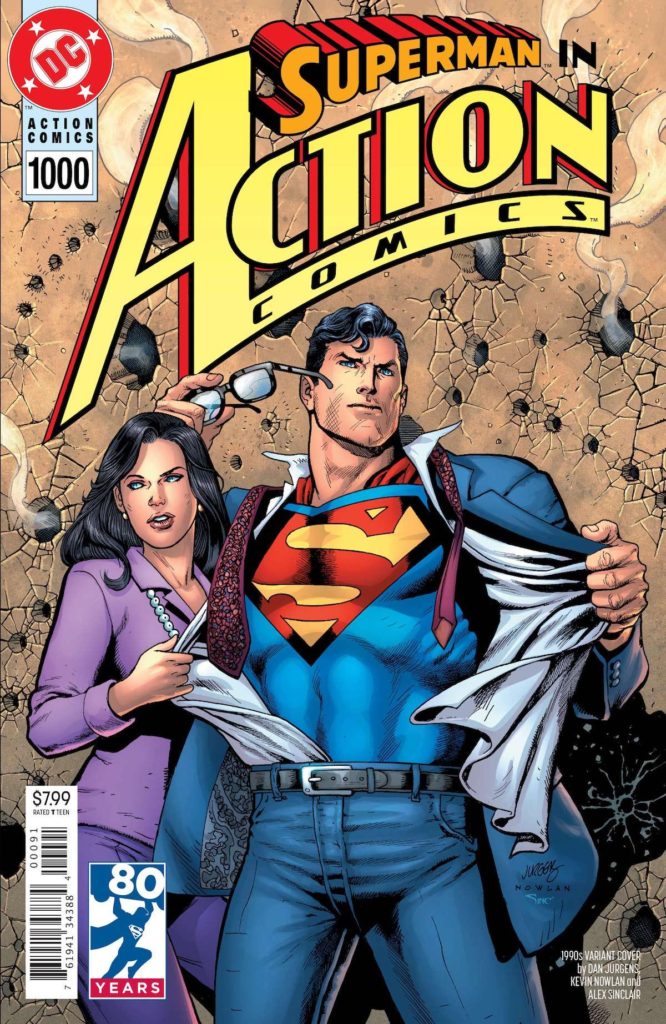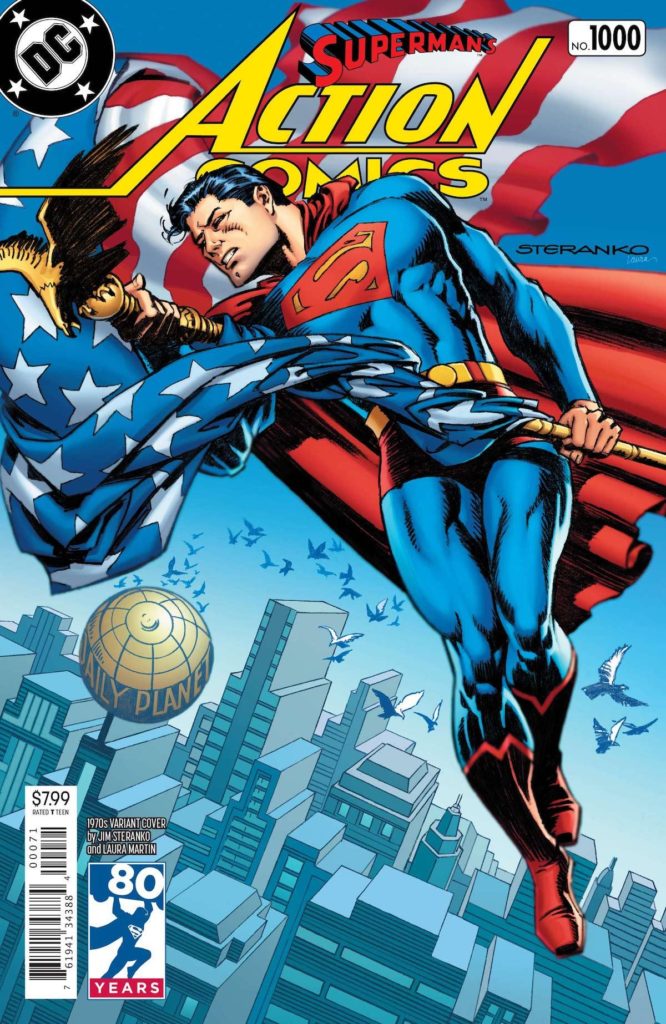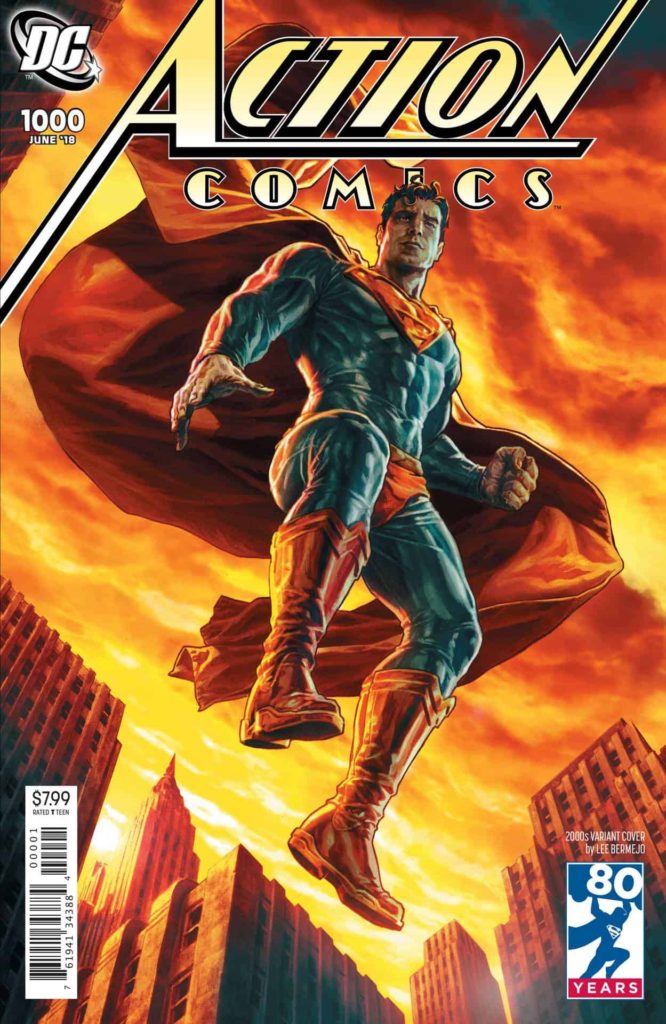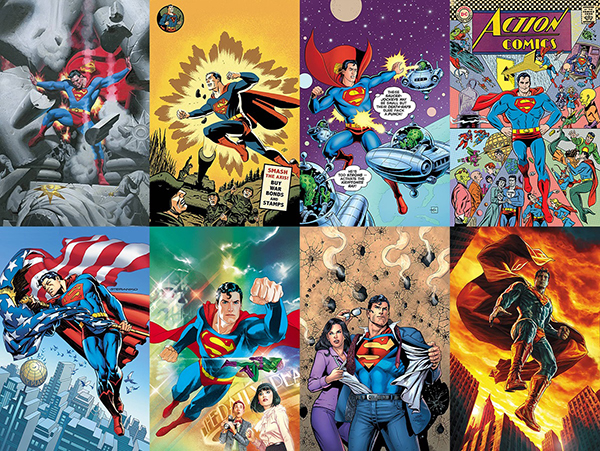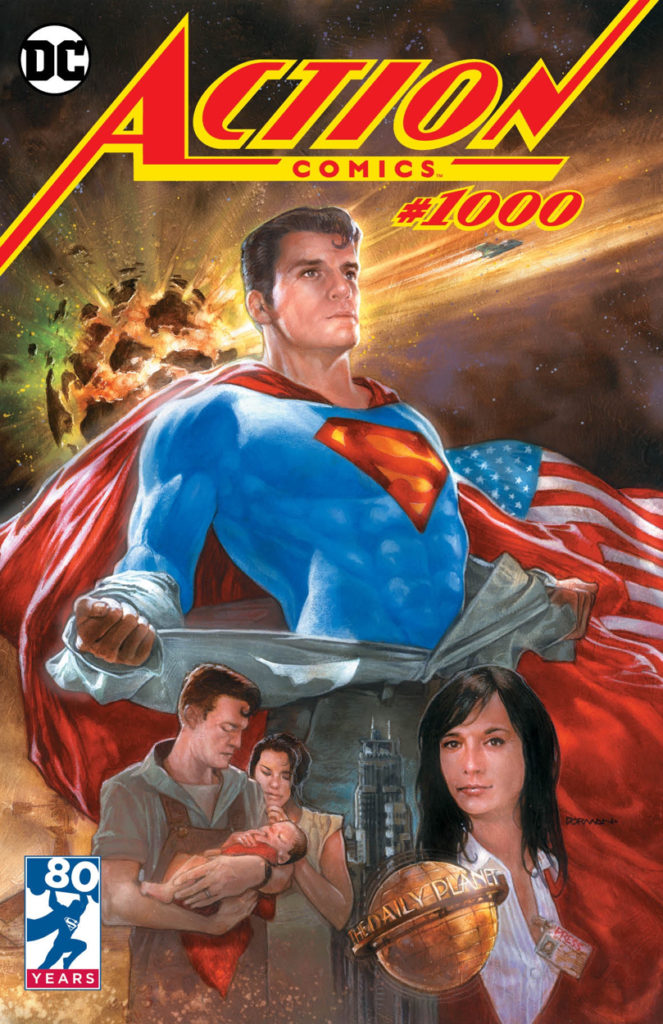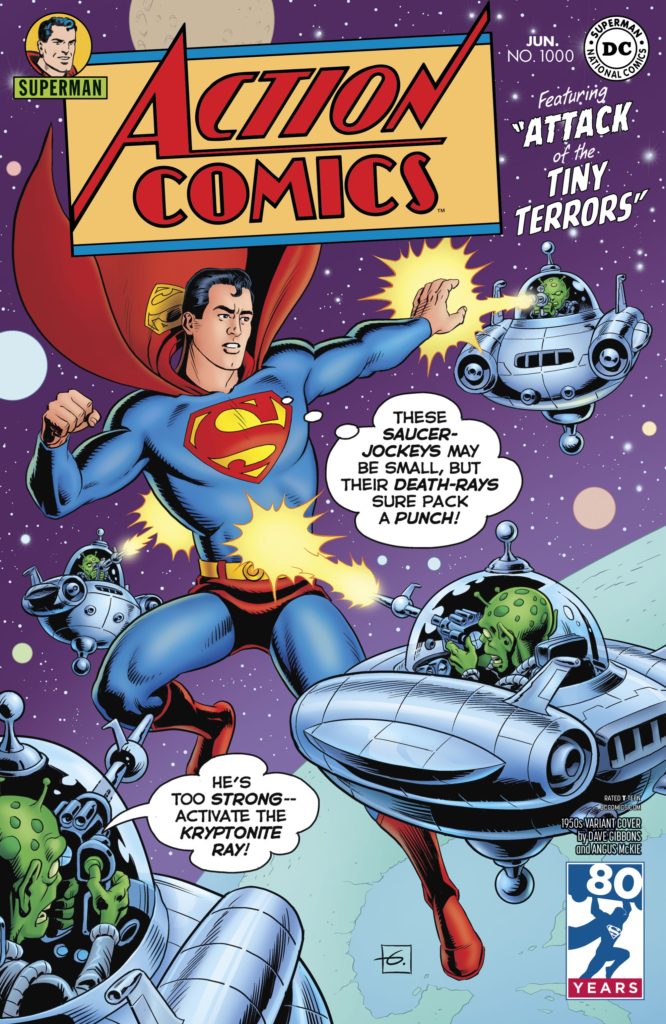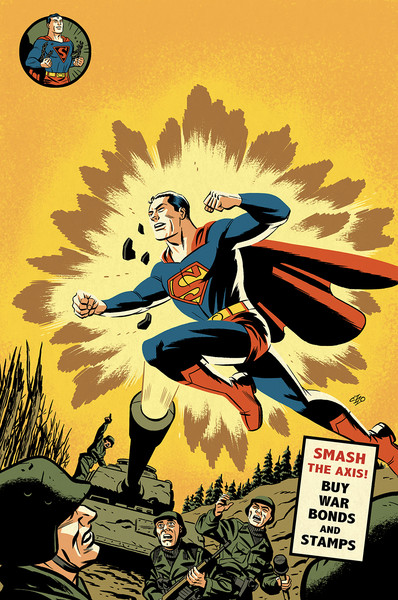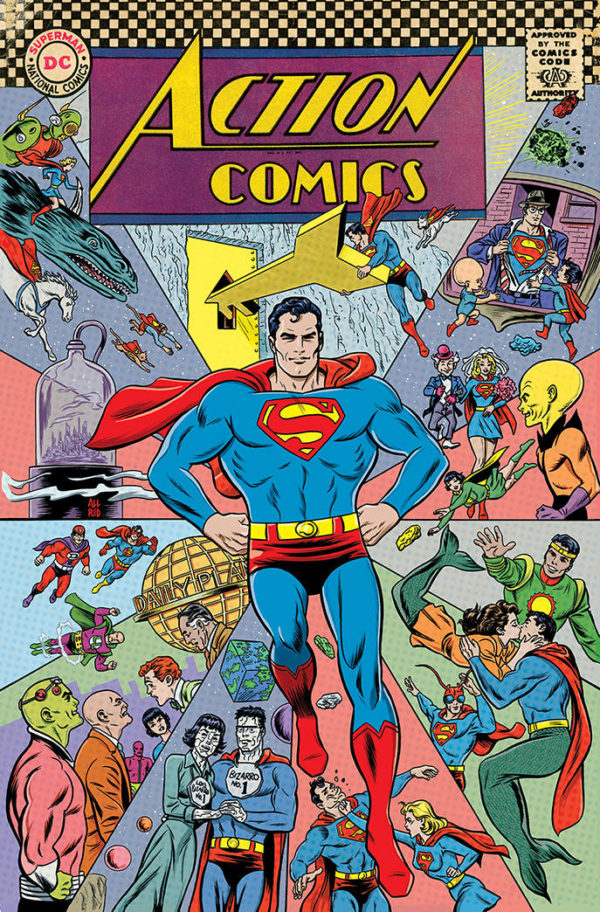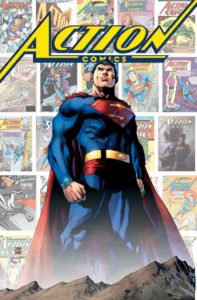

Frak you, Dan Jurgens. You made me cry — again.
The opening vignette of Action Comics #1000, written and penciled by Jurgens, sets the tone for a beautiful tribute to the Man of Steel in this landmark, historic issue.
Jurgens opens his story with a display of Superman’s raw power as he saves Earth in classic form. But back on Earth he faces a far more daunting challenge: a tribute from the people of Metropolis. It’s through the stories of the denizens of Metropolis that we learn that Superman’s greatest ability is not that he’s faster than a speeding bullet or more powerful than a locomotive. Rather, it’s his ability to inspire others to be their best.
And it made my eyes well with tears.
Telling a good Superman story must always balance his limitless power with his ability to inspire. Nearly all of the tales told by writers and artists, who have given Superman life in so many different ways, finds that balance for themselves. And that’s what this collection of stories gets right.
This issue is nostalgic too. And what else could it be? For 80 years, Superman has captivated readers, listeners and viewers. The character has captured the imaginations of countless children and adults alike.
This book is a tribute to all the adventures we all shared with him and because of him and it could not have been done any better.
“He knows he shares a bond with Metropolis,” Lois Lane says. “And that every now and then, in appreciation for all he’s given them, the people get to return the gesture.”
Superman, for as long as I can remember, has always been a part of my life. Photographs of me as a child in the early ‘80s depict me clutching a Superman action figure. You know, the one. The figure was modeled after the Super Friends cartoon. It came with a clip-on cape. You squeezed the legs and the figures arms would allegedly punch. I still have one, but the cape is gone.
My grandmothers would dutifully pin their towels to my blue T-shirts adorned with an iron-on S until my mother made me an actual cape. I often wore the cape to preschool and was forbidden to wear it to kindergarten.
I think it was the all the things he could do — all that power — that attracted me to the character.
“I was a bull in a china shop — a china shop filled with illegal guns and men who might as well have worn T-shirts that said ‘Punch me, I’m a bad guy,” Superman says in “Never Ending Battle” by Peter J. Tomasi and Patrick Gleason. “And you know what? I liked it.” How could he not? That’s the Superman of my youth. There was nothing he could not do. Nothing weighed him down. His power was limitless.
And that’s often cited by Superman’s detractors as his greatest weakness. That’s what I heard from my friends anyway. Superman is too powerful. Other heroes from other companies had flaws. Superman wasn’t real enough. They wanted dark, gritty and heroes that shared the problems of preteen boys. I was fending off that nonsense right about the time when Jurgens made me cry for the first time; I was at my kitchen table reading Superman #75, which is the issue in which Superman is killed by Doomsday.
At the time, I was looking out to the world and I saw its flaws. I didn’t want to retreat into a fantasy and see the same broken world and the same broken people. I wanted to know that there was something beyond the flaws. Superman has always done that for me.
In a way, he is able to give Lex Luthor, his most notorious enemy, that kind of inspiration. The duo face off in two stories. In the first, Luthor lashes out at Superman, who comes to him with an olive branch. “Got your sermon ready to preach? The wonders of goodness and decency?” Luthor taunts. “Or do you think you can finally beat me.”
Spoiler: Superman beats him in a raw display of power and a little bit of foresight.
But, in the next story, “The Fifth Season,” Superman is bested by Luthor. Luthor controls some key weapons that would not only kill Superman, but it would also erase him from time.
In doing so, Luthor travels to a point in time where he relives a moment in which he thought he was alone and vulnerable. But a friend secretly comes to his aid just as Luthor is making what qualifies as a prayer. Superman, powerless to stop him, is there to witness the moment.
They watch the memory together. Luthor won’t admit to what he learned and he certainly won’t admit that his life was saved, but he admits that he should be dead. But he won’t, or can’t say what he’s truly learned. Instead, he tells Superman another truth.
“I got the eye and the scissors to kill you,” Luthor confesses. The final panel of the story is primarily blank. And the final words of the story are not attributed to either character.
But we know that Luthor doesn’t kill Superman because in that moment; he learns what a unnamed woman taken hostage in “Faster than a Speeding Bullet” already knows: “You sound like my dad,” she says to Superman after he saves her. “He says that everyone is here for a reason.”I’ve often sought out my own reason. And as much as I’ve wanted to be him, I could never be Superman. Most of my life I’ve settled for being Clark Kent, and I’ve often failed to live up to that standard too.
In “Five Minutes,” Kent is on deadline and he has just moments to finish a story. But disaster strikes and he has to flee the newsroom. As he moves from one crisis to another, Superman explains what its like to be a superhero and how he has to make split second decisions.
“The rush. The focus. The fact that I’m helping people — sometimes even saving them,” he says. “Superheroing. Reporting. They’re not so different if you do them right.” As a former reporter for a great metropolitan-area newspaper, I guess I’ll have to take it.
Oh, also, the red underwear is back. Why? As an unnamed diner waitress in “The Truth” says.
“He doesn’t look like Superman without the shorts.”

-Matt McGrath
